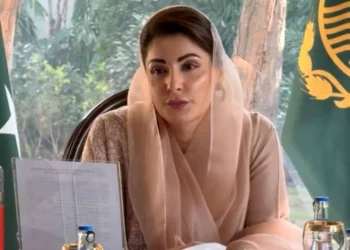BY: MAHEEN MEHBOOB
In the Middle East today, it’s not always clear who is really in charge. Many leaders seem to
control their countries, but in reality, powerful countries from outside like the United States,
Russia, and Iran still have a lot of influence. They help certain leaders, give money to armed
groups, or provide military support but often, they want something in return.
This outside control isn’t always easy to see, but it affects millions of people. Sometimes it
helps governments stay in power. Other times, it creates more problems and conflict. One thing
is certain foreign countries are still pulling many strings in the Middle East.
Let’s take Syria as an example. The war there has lasted more than 10 years, but President
Bashar al-Assad is still in power. Why? Because Russia and Iran supported him. Russia used
airstrikes, and Iran sent fighters to help him take back cities. Russia wants to keep its military
base in Syria. Iran wants to stay connected to its allies like Hezbollah in Lebanon and push
back against the U.S. and Israel.
In Iraq and Syria, the U.S. still has troops. The U.S. says it’s there to fight terrorism, but some
people believe it’s also trying to stop Iran from gaining more power and to protect Kurdish
groups. These actions affect the region even if the local people don’t fully agree.
Lebanon is also facing a lot of problems. One big reason is the power of Hezbollah a group
supported by Iran. Many people in Lebanon think Hezbollah follows Iran’s orders more than
it helps Lebanon. On the other side, countries like the U.S and France try to push their own
ideas by giving money only if Lebanon changes its politics. This outside pressure keeps the
country stuck and unable to move forward.
Yemen is another sad example. What started as a local fight turned into a bigger war involving
foreign powers. The Houthis are backed by Iran. The Yemeni government is supported by
Saudi Arabia, the U.S, and the UAE. This war has caused a lot of deaths and suffering. The
countries involved say they want to help, but they’ve caused a lot of damage.
Even in peaceful countries like Egypt, foreign countries play a role. Since the 1980s, the U.S.
has given Egypt a lot of money for its army. In return, Egypt helps keep peace with Israel and
fights extremists. But many people say this money helps keep a government in power that does
not respect human rights. Western countries don’t say much about it as long as their interests
are safe.
Because more and more people in the Middle East want change not just from bad leaders, but
also from foreign control. During the Arab Spring, people stood up for freedom and real
independence. But foreign countries stepped in to protect their friends or control the outcome.
That stopped real change in many places.
Now, a new generation is speaking out. In Iraq and Lebanon, people have protested against
both Iranian and Western influence. They are tired of feeling like their countries are being
controlled from outside.Of course, not all help from foreign countries is bad. Help with schools,
hospitals, and peace talks can be useful. But when outside powers pick sides, fund armed
groups, or support leaders who don’t care about their people they do more harm than good.
First, foreign countries need to respect local people’s right to lead themselves. This means
helping build democracy and fair systems not just supporting leaders who do what they want.
Second, Middle Eastern governments should try to depend less on outside help. This is hard,
especially for poor countries, but it’s possible. By improving schools, hospitals, and jobs,
governments can gain the trust of their people. And when people trust their own leaders, foreign
powers lose control.
Third, civil society must be protected. Journalists, young people, and activists are important
for real change. Donors from abroad should support local voices and independent media not
just the government.
The Middle East is not a game board for big countries to play on. It’s home to over 400 million
people who deserve to control their own future. As long as powerful countries treat it like a
place to fight for influence, peace will be impossible.
It’s time for foreign countries like the U.S. Russia, and Iran to step back and listen. And it’s
time for Middle Eastern leaders to stop acting like puppets and start doing what’s best for their
people.Real peace and progress won’t come from foreign deals. They will come from trust,
fairness, and local leadership. The people of the Middle East are ready. The world should let
them lead.


















